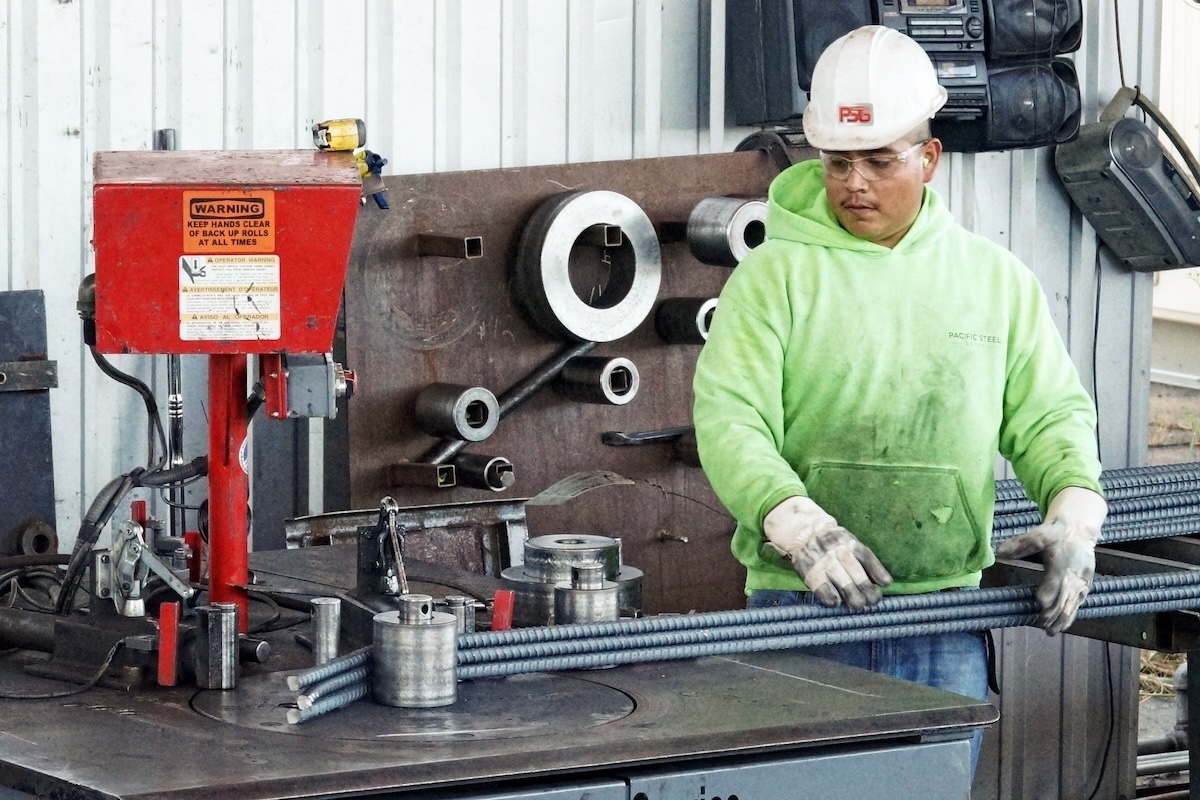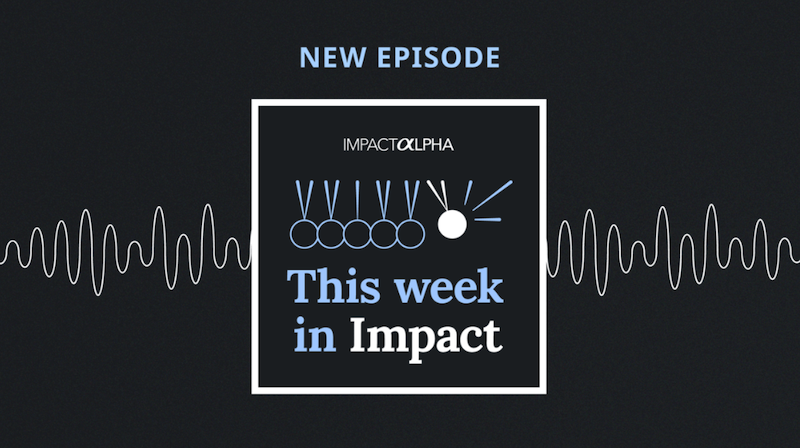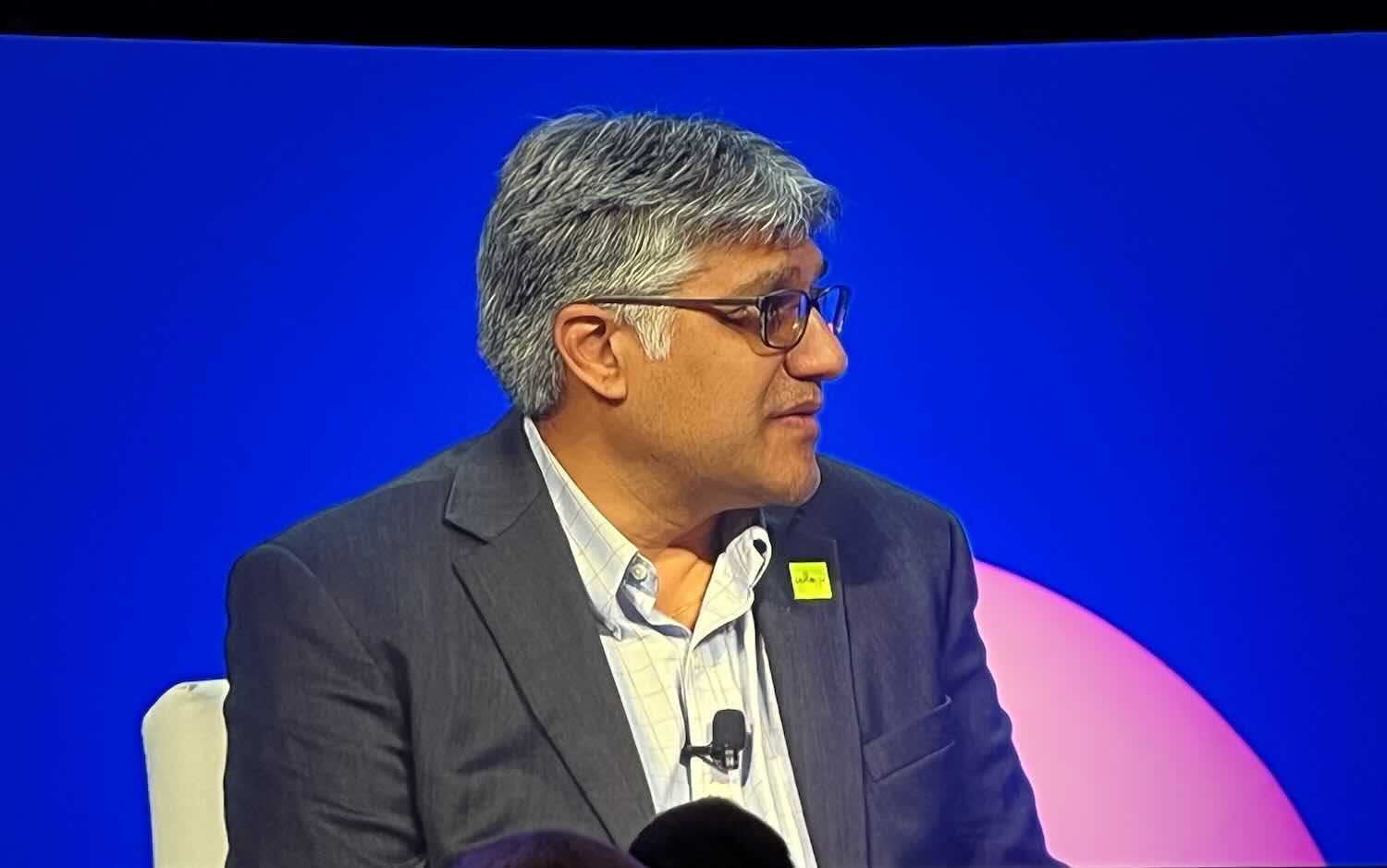ImpactAlpha, June 12 – Municipal bonds are literally private investments in public goods, making them perhaps the original impact investments.
About $435 billion in U.S. municipal bonds were issued last year to investors to finance projects with impact, including parks and schools, roads and bridges, clean energy installations and municipal broadband. But the muni-market has become fee-laden, centralized and opaque, putting distance between the investors and the places and projects they finance. Another problem: munis are boring.
“This is just not that sexy,” says Jase Wilson, who co-founded Neighborly, a muni-bond fintech platform that connects investors and issuers. Wilson raised $25 million last year and counts among his investors Ashton Kutcher’s Sound Ventures, Laurene Powell Jobs’ Emerson Collective, 8VC and Stanford University.
The muni-bond platform has launched a stand-alone investment manager to deliver tailored impact investment opportunities through municipal bonds, is helping Atlantans buy environmental impact bonds, and is helping the city of Berkeley, Calif., issue the world’s first municipal bond on the blockchain, to tackle homelessness and housing insecurity.
“We need to get back to the era when the financing mechanism was the way to rally troops around bringing the new thing to life,” Wilson told ImpactAlpha. “When the front page of the paper was like ‘buy the bond, let’s use it for this cool project.’”
Neighborly started as an online platform making it easier for people to donate to civic projects and grew into a marketplace to facilitate direct bond purchases. ImpactAlpha spoke to Wilson, and his colleague Alex Laipple, about Neighborly’s evolving model to reconnect people with the places and projects they care about.
ImpactAlpha: AllianceBernstein’s Eric Glass is also touting the potential of munis as impact investments. Do you agree?
Jase Wilson: Municipal bonds are the original impact investment – with more than two centuries of impactful projects like schools and libraries and parks and even the roads that connect us to economic opportunities and to each other – before that was ever a term. We think there’s a really good opportunity to make that connection obvious. We like to say often that municipal bonds are the original impact investment. I say it at conferences enough now that I think it’s gotten out in the wild.
ImpactAlpha: What needs fixing in the muni-market?
Wilson: The municipal markets are greater than two centuries old. For 140 years it worked great. It was very much local. It had problems with distribution and price optimization and price discovery. It had another problem: if you had the piece of paper, you owned the bond. That was bad for many reasons from money laundering to train robberies.
The market long fought to form a central registration which was contentious because permission-less financing of public projects was the spirit of America’s foundation. It did not involve the permission of the federal government. The municipal market grew up as group of folks wanting to take collective action and using it as their financing mechanism to power their ideas.
When we switched to the system that’s in use today, called book entry, it was really easy for a handful of global banks to gobble up the entire market because all orders would flow into a single database that only a handful of people understood and only a handful of people stood in the middle of. There was this centralization that took it from the hands of the communities and turned it into an industry that is easy to consolidate. It was easy for Wall Street to control that industry. And you know how that goes.
ImpactAlpha: Is there a reason Wall Street wants to gobble it up?
Wilson: It can be a cash cow and in many of the banks’ cases, it’s one of their larger cash cows and one of their more profitable divisions. Some people are in the business of putting new bond deals together in their public finance division. Others are in charge of managing the wealth of high net worth individuals. Others are down the hall crafting products from municipal bonds like municipal bond funds. And you have not just one way to make money from the bonds but many ways. You can make money off of the same bond over and over if you’re a really savvy banker.
ImpactAlpha: How are you solving these problems?
Wilson: I’m a technologist from a little town in the Midwest. I’m never the smartest person in the room but think a bit differently and don’t accept the status quo. My prior company was in the business of helping local governments save lots of money on software by switching legacy enterprise software systems to open-source equivalents. I’m a big believer in making systems as efficient as possible and wringing out has many unnecessary steps as possible.
Every minute, 24/7, 365, $40,000 goes to the folks in the middle of the market. The fees are huge and we think about the fees. That’s why we think there’s an enormous business being built here. But that’s not why we’re doing it. It’s about putting the power of public finance back into the hands of civic visionaries.
ImpactAlpha: How are you doing that?
Wilson: Taking advantage of all of the benefits of an electronic system but recasting them in a decentralized system. The twin aims are: communities can borrow what they need, when they need it, starting with their constituents. On the other side, investors can invest directly in world-positive public projects. Both necessary. It’s an ecosystem and a platform.
The community should own its infrastructure and it should be the beneficiary of the value of the infrastructure even if it chooses to license the operation of infrastructure to a private entity. Between that mechanism of control being in community hands, and the fact that if you do a bond right, you can use 2%, or 3% on your overall cost of capital. It’s just a better outcome for the community and it is a better outcome for the investors to get access to it.
ImpactAlpha: Who can buy a bond on Neighborly’s platform?
Wilson: From grandma down the street who has $1,000 to invest in the school that’s being built, all the way up to sovereign wealth funds on other continents. And something for everybody in between.
ImpactAlpha: And who can issue muni-bonds?
Wilson: The vast majority are issued by a local government entities. States can issues bonds. Counties can issue bonds. Cities can issue bonds and that’s where you find the bulk of the money. School districts that are considered a special district can borrow through the bond market. Nonprofit with demonstrable public benefit and meeting certain criteria can borrow through the market.
Let’s say a group of neighborhoods in New Jersey get together and decide they want own their own energy so they want to invest $5 million dollars in themselves and build a microgrid. We make that possible. We make it possible for them to access New Jersey’s special district mechanism that can create the financing.
ImpactAlpha: Early on you guys crowd-sourced project ideas from local municipalities. What were some of the projects that came out of it?
Wilson: Unbelievable innovation sits on the sideline in local government. The government has that weird perverse incentive that works contra to innovation. If they stand up and do something new and if it doesn’t work exactly right they’ll get fired. If they stand up and do something new and it’s revolutionary, and it works great, they might get re-elected or keep their job. So there’s that tendency to not innovate.
What we saw are dozens of pent-up ideas that we are really excited to help bring to light. Community microgrids. Mechanisms to convert waste to useable energy. Cities know they have to do more with less. Bike lanes. Increasingly we think we need to get back to the era when the financing mechanism was the way to rally troops around bringing the new thing to life. When the front page of the paper was like, ‘Buy the bond. Let’s use it for this cool project.’
ImpactAlpha: How your model has evolved?
Wilson: We’re building a market that is as efficient, as turn-key and easy to use at Wall Street made it, but back in the hands of the community. Our model is not just ‘Help somebody invest in project they care about directly,’ because few people who have the means to do that at a large scale have also the time or the desire do that individually. They entrust really smart people like registered financial advisors to do that for them. So we built a mechanism that we didn’t even imagine until last year that helps such managers find the right opportunities with the goal of bending the arc our capital towards highest impact.
Alex Laipple: We feel that even though access is important to our mission, a lot of that access needs a human touch to augment, especially when it comes to munis. We want to empower the advisors to get better access to impact investments. You can buy individual bonds through Neighborly, the broker-dealer. We also have an asset manager, which is a completely different business, based in Boston, to create tailored impact muni separately managed accounts.
We feel like the core focus on democratizing access means giving access to all types of municipal investments. You need to have investments that serve the entire community. Now only we feel we have that with our business model.
ImpactAlpha: What’s your goal for moving investor capital into muni bonds?
Wilson: We have a goal at Neighborly to this year put $100 million into the combination of community microgrids and municipal broadband, through our public finance side of the house. To date, we’ve done over $200 million. We’ve been a syndicate member to over $9 billion in transactions. We’re just getting started. We’re proud of that but we have a long way to go because it’s a billion-dollar-a-day market. We’ve set a goal for ourselves on the asset management side in the billion dollar range for this year. The goal overall is to become a multibillion dollar a month platform that helps the market move money from as close as possible to the investor to directly the project.
ImpactAlpha: How are you measuring the impact of the municipal bonds coming through the platform?
Laipple: It’s less about measurement and more about alignment with the U.N. Sustainable Development Goals. As a whole the municipal bond market is very impactful. We want to take it a step further. We want to be the impact broker-dealer, where you can come on our website and find projects that are very impactful that can be tied to specific goals that are outlined in 17 SDGs. We’re trying to be consistent in things being like quality education, water, affordable energy. Those are very tangible projects that you can invest in directly through the municipal bond market. Tied to those projects are outputs, numerical values, so that you know as an investor, like, the effect of this Affordable Housing issuance.
We want to get to a place where measurement is more standardized. But it’s not for us to measure impact. It’s for us to demand better reporting and for us to bring better deals to market. When it comes to the measurement piece, that I think is heavily reliant on the issuers disclosures and reporting.
ImpactAlpha: Jase, you’ve been blogging a bit about blockchain. What’s the blockchain opportunity in municipal finance?
Wilson: Ashton Kutcher invested in Neighborly and we asked all of our investors, ‘what’s one thing we can do do win?” His was the shortest and best, and it’s in our entry way at 16 Maiden Lane in San Francisco, our headquarters. He said simply, ‘Make bonds sexy again.’ John Oliver called municipal bonds, ‘The part where you’re talking to your accountant and you fall asleep.’
He’s right. This is just not that sexy. And our use of this extremely sexy new crypto network and protocol ecosystem, the blockchain is part of that, is the least sexy application you can imagine. It’s just to make it work 100 times better. It’s not ‘to moonshot,’ it’s not ‘to Lambo.’ Although Lambos need roads to run and those roads are built by bonds.
It brings us full circle back to your initial question of what the hell is wrong with this in the first place. We use blockchain to leverage the benefits of electronic systems without the centrality centralized. Cost, speed, and ownership are the reasons we use blockchain.
ImpactAlpha: So you are actually using blockchain.
Wilson: We do. If you go on Neighborly.com you can not see it anywhere, nor can you buy a bond with a bitcoin, yet. In July, we’re switching on a system that makes use of our own clearing and settlement infrastructure, that operates on the blockchain.












